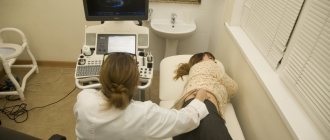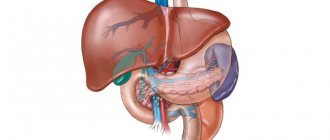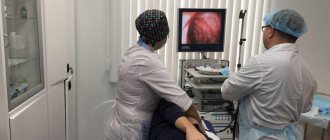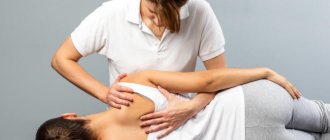Among all diseases of the esophagus, one that occurs most often stands out. This is esophagitis - an inflammatory disease of the esophagus. Frequent symptoms: burning in the chest, discomfort when swallowing, heartburn, belching. Esophagitis is dangerous because, in the absence of proper treatment, it significantly reduces the quality of life and in some cases can develop into a complicated form. In particularly advanced cases, stenosis of the esophagus or perforation of the wall is possible, as well as the development of esophageal cancer - these are life-threatening conditions. To avoid complications, timely diagnosis and treatment are required.
To make a diagnosis, you will need to do several studies: endoscopy and radiography, as well as a biopsy of the esophageal mucosa if indicated. Treatment depends on the etiology and includes both drug therapy and recommendations for lifestyle changes. If pathological changes in the walls of the esophagus are irreversible, then surgical intervention will be required.
At CELT you can get advice from a gastroenterologist.
- Initial consultation – 4,200
- Repeated consultation – 3,000
Make an appointment
Causes
There can be many causes of esophagitis: from mechanical injuries and chemical damage to the mucous membrane to infectious diseases. There are forms of the disease associated with gastritis. In this case, the development of esophagitis is often provoked by the reflux of acid from the stomach. This pathology is specifically called gastroesophageal reflux disease (GERD).
The most common reasons include:
- Mechanical damage. This category includes thermal burns of the mucous membrane, cuts with hard or sharp objects, and ingestion of foreign bodies.
- Damage from chemicals.
- The development of an allergic reaction to food affecting the esophageal mucosa.
Most often, the most severe consequences are observed after burns (thermal and chemical). Infectious esophagitis, as a rule, develops against the background of a general decrease in immunity. In healthy people, viral and bacterial agents do not linger in the esophagus.
Infectious esophagitis can be a complication of influenza, diphtheria and other viral and bacterial diseases. Separately, candidal esophagitis is distinguished, which occurs when the mucous membrane is damaged by fungal flora.
Chronic esophagitis
A separate list identifies the causes of chronic esophagitis:
- Habit of consuming very hot food and drinks.
- Addiction to alcohol.
- Reflux esophagitis, caused by irritation of the mucous membrane with acidic or alkaline reflux from the stomach.
- Work that causes inhalation of caustic fumes.
- Metabolic disorders: vitamin deficiency, intoxication.
- Idiopathic esophagitis - etiology is unclear.
Each form has its own treatment, so at the diagnostic stage it is important to find out the type and causes of the disease.
General tips on how to help the body cope with illness
For any disease of the respiratory tract, including tracheitis, you should follow some simple rules.
- Drink more warm liquids: fruit drinks and heated mineral water without carbon, decoctions of rose hips, raspberries and linden blossoms. This will not only help relieve intoxication, but will also help thin the sputum.
- Eat high-calorie, vitamin-rich foods. During illness, the body needs nutrients to repair tissue and maintain the functioning of the immune system.
- Stop smoking and ask family members to smoke only outside the home.
- Eliminate irritating factors: smoke, dust, strong odors. During illness, it is advisable not to use household chemicals and temporarily stop using perfumes and eau de toilette.
- Ventilate the room and maintain a sufficient level of humidity. Dry air irritates the mucous membrane of the respiratory tract and provokes coughing attacks.
With timely treatment, tracheitis resolves within 10–14 days, without leaving any consequences and without subsequently limiting the ability to work.
Symptoms
Manifestations differ for acute and chronic forms. Acute esophagitis is characterized by increasing symptoms. The severity of symptoms depends on the degree of damage to the mucous membrane. The catarrhal form is often asymptomatic.
Main symptoms of esophagitis:
- Pain (sharp or burning). Localized in the chest, it can radiate to the back and neck.
- Dysphagia is a difficulty swallowing solid and sometimes liquid food.
- Heartburn.
- Belching, regurgitation.
- Increased salivation.
- Vomiting with blood (if complications develop).
Symptoms of acute esophagitis disappear after 7-10 days, after which a period of rest may begin. If risk factors persist and there is no treatment, symptoms recur after some time and the disease progresses.
Without treatment, complications of esophagitis develop:
- erosions and ulcers – deep reversible defects of the mucous membrane;
- stenosis is a condition in which the lumen of the esophagus narrows;
- perforation (rupture of the wall of the esophagus) is a life-threatening condition that requires emergency medical attention;
- development of paraesophageal phlegmon and abscess, most often occurring against the background of esophagitis caused by mechanical damage to the wall of the esophagus.
With a long course of the chronic form, degeneration of mucosal cells is possible with the development of a precancerous condition and esophageal cancer.
What to do? ↑
If you experience an obsessive burning sensation, you should not self-medicate, but should go to a therapist. After examining you, the doctor will determine which of the highly specialized specialists you need: a gastroenterologist, an otolaryngologist or an endocrinologist. Treatment of diffuse goiter, gastritis or sore throat is fundamentally different, and without determining what exactly caused the symptom, it is absolutely impossible to start therapy.
You can only slightly relieve the symptoms on your own with certain manipulations, which should be performed only against the background of the main treatment, without replacing it. These include:
- moisturizing the laryngeal mucosa, aerosols or inhalation using a nebulizer with alkaline mineral water. Irrigation of the throat relieves dryness, soreness and burning;
- create a diet of warm, liquid or semi-liquid food that will not injure the larynx. Avoid hot, spicy, too salty and hard foods;
- reduce the load on the vocal cords as much as possible, try not to talk at all, especially not to shout or sing.
Note! These recommendations are not able to eliminate the cause of the burning sensation, but act only as symptomatic therapy, alleviating the patient’s condition for a while. Therefore, contacting a specialist for adequate treatment should be mandatory.
Diagnostics
Diagnosis is carried out in order to differentiate esophagitis from diseases with similar symptoms, as well as to identify the cause of the development of the disease. The easiest way to make a diagnosis is for an acute disease: patients complain of specific pain. A burning sensation behind the sternum (heartburn) is a typical symptom of inflammation of the esophagus, which forces the patient to consult a gastroenterologist. The doctor conducts a survey, finding out the possible causes of the disease, examination, and then prescribes additional examinations.
As part of the diagnosis of esophagitis, the following methods are used:
- Endoscopic examination of the esophagus (esophagoscopy). The study makes it possible to determine the degree of damage to the mucosa and the location of defects.
- Biopsy. Biological material is collected during endoscopy. Histological examination allows us to determine the nature of changes in the mucosa, identify neoplastic processes, and eosinophilic esophagitis.
- To diagnose disorders of the motor function of the esophagus, esophagomanometry is prescribed.
- X-ray examination of the esophagus. The study is used to identify stenosis, diverticula, and hiatal hernia.
- Daily pH-metry to identify reflux disease as a cause of esophagitis.
Based on the examination results, the attending physician chooses treatment tactics.
Literature
- I. N. Zakharova, N. A. Korovina. A sore throat. Medical advice. No. 2, 2013, pp. 70-76.
- I. B. Angotoeva. Differential diagnosis of sore throat. Medical advice. No. 15, 2014, pp. 42-46.
- S. V. Ryazantsev. Etiopathogenetic therapy of acute pharyngitis. Consilium Medicum. No. 10, 2007, pp. 64-67
- Instructions for use of the drug HEXORAL® solution.
- Instructions for use of the drug HEXORAL® aerosol.
- Instructions for use of the drug HEXORAL® aerosol for the whole family.
- Instructions for use of the drug HEXORAL®TABS.
- Instructions for use of the drug HEXORAL®CLASSIC.
- Instructions for use of the drug HEXORAL®TABS EXTRA (from 12 years and older).
Treatment
Treatment for esophagitis is determined by its cause and severity. If esophagitis is caused by a chemical or thermal burn, then hospitalization is required. The acute form of the disease is treated with medications, refusal of food for 1-2 days, and diet.
If a patient develops esophagitis of an infectious nature, then therapy aimed at destroying infectious agents is required: antibacterial, antifungal or antiviral drugs. For reflux esophagitis, antisecretory, antacid, and prokinetic drugs are prescribed.
In case of severe pain, painkillers are prescribed. If phlegmon or abscess develops, surgical treatment is required.
Therapy for chronic esophagitis involves eliminating the cause of its occurrence. The rest of the prescriptions are identical: diet, medication, giving up bad habits. Physiotherapeutic procedures are indicated for some patients.
The prognosis is favorable for mild to moderate esophagitis. The success of therapy largely depends on compliance with dietary and lifestyle recommendations. There is no specific prevention of the disease. Prevention of relapse after successful treatment means following the basic recommendations that the doctor gives after recovery.
In the multidisciplinary CELT clinic, you can undergo diagnostics and select effective treatment. Individual approach, the best gastroenterologists and modern treatment methods. Being healthy is easy under the supervision of qualified specialists at the CELT clinic.
Burning sensation in pregnant women
Heartburn is a common companion for pregnant women. Hormonal changes, an increase in progesterone levels, compression of the stomach - all this causes activation of the pathological process. Many medications are prohibited for pregnant women, especially in the first trimester. First of all, women are recommended to adjust their diet and lifestyle.
This may include reducing portions (overeating will only aggravate the condition), avoiding fatty, fried, spicy, smoked foods, limiting the consumption of vegetables that contain fiber: white cabbage, garlic, onions, radishes, radishes; at the first sign of a burning sensation, it is better to refuse from mushrooms, nuts, black bread, chocolate, strong tea and coffee.
Heartburn appears during pregnancy due to hormonal changes
Recommended foods for heartburn include oatmeal, milk, yogurt, kefir, and carrots. The daily menu should include thick puree soups, as well as viscous porridges. If the above recommendations are ineffective, pregnant women may be prescribed medications. Plant-based alginates are often used.
By chemically treating brown algae, it is possible to neutralize hydrochloric acid. This group of drugs relieves an attack of pain and does not damage the mucous membrane of the digestive organs. Alginates can be used throughout pregnancy. They are not absorbed, neutralize toxins, coat the mucous membrane of the esophagus and stomach, and also restore intestinal microflora.
Important! Alginates are fast-acting drugs.
Our services
The administration of CELT JSC regularly updates the price list posted on the clinic’s website. However, in order to avoid possible misunderstandings, we ask you to clarify the cost of services by phone: +7
| Service name | Price in rubles |
| Gastroscopy (videoesophagogastroduodenoscopy) | 6 000 |
| Colonoscopy (video colonoscopy) | 7 000 |
| Ultrasound of the abdominal organs (liver, gall bladder, pancreas, spleen) | 3 800 |
| Fluoroscopy and radiography of the stomach | 4 800 |
All services
Make an appointment through the application or by calling +7 +7 We work every day:
- Monday—Friday: 8.00—20.00
- Saturday: 8.00–18.00
- Sunday is a day off
The nearest metro and MCC stations to the clinic:
- Highway of Enthusiasts or Perovo
- Partisan
- Enthusiast Highway
Driving directions
Burning esophagus: characteristics of the disorder
The initial signs appear in minor manifestations, often the person does not give any importance to the illness. As the provocative pathology develops and progresses, the sensations intensify, creating additional problems and inconveniences. First, a solution of soda, alkaline water, and antacids help relieve the burning sensation in the esophageal tube, larynx, and stomach. Then the burning sensation becomes stronger, pain and other symptoms appear.
If the burning sensation is intense and painful, the patient has to swallow painkillers. However, treatment with personal methods is fraught with adverse consequences and severe complications of the underlying pathology.
Useful video
A burning sensation in the esophagus, the causes and treatment of which have already been clarified, can be overcome by seeking help in time. Heartburn in the esophagus, the causes of which are varied, can be eliminated using the methods outlined in this video.
Dosage forms
The following drugs are selected from the group of medications: Almagel , Maalox , Phosphalugel , Vikalin , Rennie , Vikair . These agents regulate acidity by binding them. Also, depending on the symptoms, bismuth preparations, histamine blockers, and proton pump inhibitors .
ethnoscience
When the esophagus and throat burn, people use soda solution . To do this, dissolve a coffee spoon of baking soda in a glass of warm water and drink in small sips.
You can also chew and swallow calamus root, and on an empty stomach drink freshly squeezed potato juice 25 minutes before meals. Activated carbon , dissolved in a small volume of liquid, helps well
Adjusting your diet
When burning discomfort in the alimentary canal occurs, as well as when the throat burns and the stomach burns, the fundamental principle of treatment is proper nutrition. A healthy diet is characterized by the exclusion of foods that irritate the gastrointestinal tract.
Patients with pain and burning sensation in the food canal should avoid fried, spicy foods, soda, too hot or very cold foods, strong tea, coffee, and alcohol. It is good to eat boiled or baked pureed food in small portions five to six times a day.









